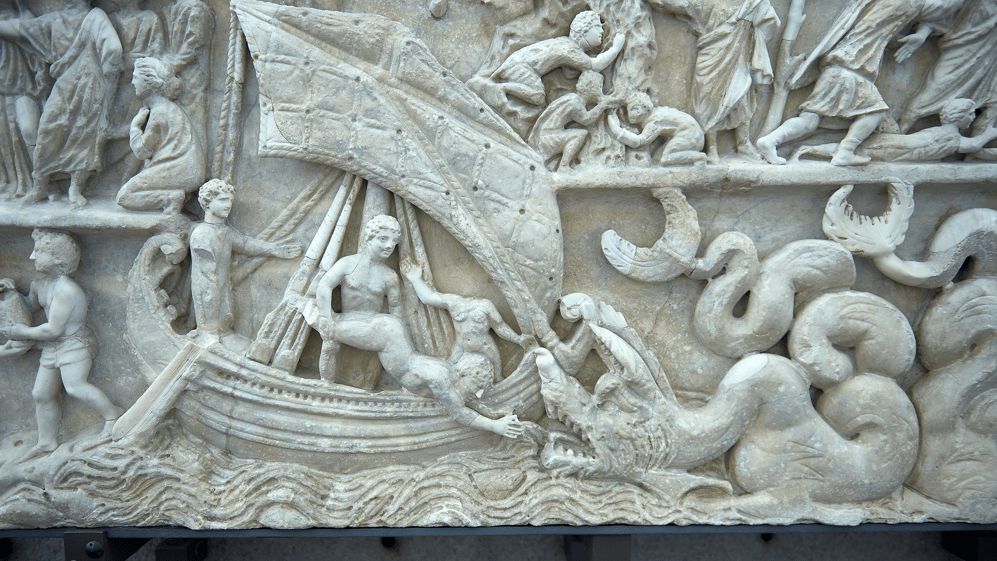As part of Confession and Absolution in the Sunday morning liturgy, we acknowledge before God and one another that we have offended the Lord not only in what we have done but also in what we have failed to do. We can, and often do, sin by neglect. The inclusion of this type of confession is so insightful and powerful. It is insightful in the sense that we more often notice and remember our sins of commission—the things we do—rather than things we don’t do.
What We Have and Haven’t Done
I recall my hateful thoughts, the harsh words I spoke to my spouse, and the candy bar I stole over the summer. I am prone to forget or not even ponder my lack of gratitude in my heart toward God and His many blessings, the words of comfort I didn’t speak to a grieving friend, or the goods I failed to take to the food bank.
That was also the case with Jonah. The great city of Nineveh, the capital of the Assyrian Empire located in the Middle East along the Tigris River, had grown egregiously wicked. God, extending mercy rather than abject wrath, called Jonah to travel to the city and speak against it. God wanted to turn Nineveh back from its disobedience. Jonah elects to flee in the opposite direction toward Tarshish, a portion of what we believe to be modern-day Spain or Gibraltar. Soon, the ship is beset by a great storm, and it becomes clear that Jonah, running from God’s calling, is the cause, which we read in Jonah 1:13–17:
Nevertheless, the men rowed hard to get back to dry land, but they could not, for the sea grew more and more tempestuous against them. Therefore they called out to the LORD, “O LORD, let us not perish for this man’s life, and lay not on us innocent blood, for You, O LORD, have done as it pleased You.” So they picked up Jonah and hurled him into the sea, and the sea ceased from its raging. Then the men feared the LORD exceedingly, and they offered a sacrifice to the LORD and made vows. And the LORD appointed a great fish to swallow up Jonah. And Jonah was in the belly of the fish three days and three nights.
Study
Reading and rereading is an essential part of studying Scripture. We cannot help but think of when Jesus was on a boat in the Sea of Galilee with His disciples when we read Jonah 1:6: “So the captain came and said to him, ‘What do you mean, you sleeper? Arise, call out to your god! Perhaps the god will give a thought to us, that we may not perish’” A storm arose when Jesus was on a boat with His disciples, too, and the disciples were terrified of drowning, crying out to Jesus to save them.
Jonah’s predicament foreshadows Jesus’ deliverance on the sea. Our Lord merely rebukes the wind and the sea. All of a sudden, there is great calm. Teaching these two passages in tandem is a fantastic opportunity to stress that Jesus is God. In both instances, God calmed the storm.
It’s noteworthy that the captain of Jonah’s ship, although by this account not a believer in the one true God, expresses concern for the welfare of his passengers. This contrasts with Jonah’s initial lack of concern for the other passengers and his disregard for the spiritual well being of the people of Nineveh.
God demonstrates His mercy greatly in Jonah. First, God could have justly destroyed Nineveh for its wickedness. Yet He sends the broken, hardhearted Jonah to warn them. The Lord’s goal is Nineveh’s repentance, forgiveness, and restoration. Second, God could have rewarded Jonah’s flight with punishment. Instead, there is discipline—three days and three nights inside the great fish. God’s goal is to change Jonah’s heart. Finally, through these events, God turns the hearts of the other passengers on Jonah’s ship. By the end of Jonah 1, they fear the Lord and make offerings and vows to Him.
Law
The Ninevites were wicked. They had turned to false gods and were troubling the people of Israel and other neighboring peoples. God be praised for His mercy in sending Jonah to speak words of rebuke and conviction.
Regarding Jonah, it’s vital to recognize that the prophet bore a merciless heart despite his sinful act of fleeing. Despite his need for forgiveness, Jonah would not take part in the Lord’s ministry of reconciliation. As forgiven sinners, we must not fall into the temptation to consider some worthy of forgiveness in Jesus and others not. God calls us to share Christian love and the Good News of Jesus Christ with everyone equally.
Gospel
Jonah’s actions at the end of Jonah 1 give us a picture of Christ’s work on our behalf. Jonah calls his shipmates to cast him into the sea so the raging wind and waters would cease. Once in the sea, Jonah spends three days and three nights inside the great fish. Jesus, having no sin of His own, agrees to be “cast” onto a Roman cross, knowing that doing so would provide redemption for a sinful world. Where Jonah spends three days in the great fish, Jesus descends into the tomb to declare victory over Satan, anticipating His resurrection on the third day. Despite our frequent disregard for God’s calling to act, Jesus never neglected us, even to the point of death on the cross!
Scripture: ESV®.
Study Jonah more in-depth with
LifeLight: Obadiah/Jonah/Micah—Leaders Guide.












